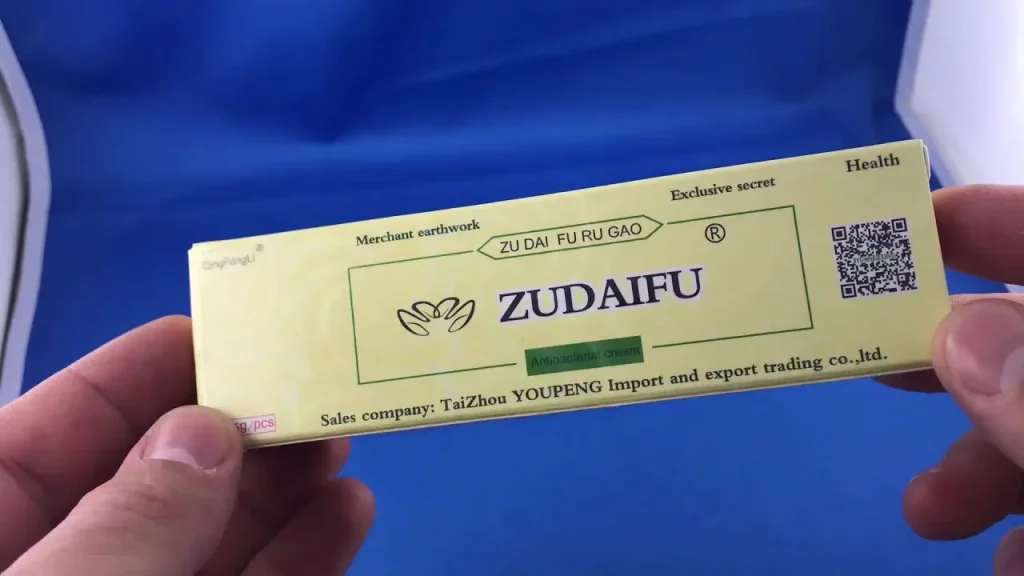Zudaifu cream, a topical treatment for skin conditions like eczema and psoriasis, has received positive reviews for relieving symptoms without irritation. However, it’s important to separate fact from fiction, as it’s often marketed as a “natural” Chinese herbal remedy.
This review will assess the safety, effectiveness, and other key aspects of Zudaifu cream to help you make an informed decision.

What Is Zudaifu Cream?
Zudaifu cream is a topical treatment often marketed for conditions like eczema, psoriasis, and other skin irritations. It is promoted as a Chinese herbal remedy, containing a blend of natural ingredients aimed at reducing inflammation, itching, and discomfort associated with these conditions.
The cream claims to provide relief without causing dryness or further irritation to the skin, making it a popular alternative for individuals seeking natural solutions for chronic skin problems.
How Is Zudaifu Used for Treating Skin Conditions?
Zudaifu is conveniently available in various forms, including liquid, capsules, and creams, and can be purchased from reputable health and nutrition stores online.
Normally, Zudaifu cream is applied topically to treat skin conditions like eczema, psoriasis, and other irritations. Here’s how it’s typically used:
- Clean the affected area: Before applying Zudaifu, the skin should be clean and dry to ensure the cream can absorb properly.
- Apply a small amount: A thin layer of the cream is applied directly to the affected area, usually once or twice a day, depending on the severity of the condition and the product instructions.
- Massage gently: Gently rub the cream into the skin until it’s absorbed.
- Use consistently: Regular application over a period of time is recommended to see results. For chronic conditions, consistent use may be necessary to manage flare-ups and symptoms.
- Avoid sensitive areas: It’s generally advised to avoid applying Zudaifu cream to broken skin, mucous membranes, or very sensitive areas like around the eyes unless directed by a healthcare professional.
As with any topical treatment, it’s important to do a patch test on a small area of skin to check for potential allergic reactions before using it extensively.

Is Zudaifu Safe to Use?
The use of Zudaifu cream for treating skin conditions is not endorsed by regulatory bodies such as the FDA or NHS, which emphasize the importance of seeking proper medical advice and supervision for such treatments. Caution is also advised when relying on online reviews, as some may contain false claims about the product’s effectiveness.
Additionally, the market is saturated with counterfeit versions of Zudaifu, making it difficult to verify product authenticity. To ensure safety, it’s essential to buy from reputable sources. The lack of transparency regarding the cream’s ingredients further raises concerns, making it advisable to avoid using the product.
Why Zudaifu Is Not Considered to Be Safe
The safety of Zudaifu cream is concerning due to the inclusion of potent steroids, such as clobetasol propionate, which can cause severe side effects if misused. Despite some sellers downplaying the risks, regulatory bodies like the FDA advise against its use. Clinical trials have confirmed the presence of this steroid, underscoring potential dangers.
While Zudaifu may not be a scam, it is not considered a safe option for treating skin conditions. Steroid creams should only be used under medical supervision, and it’s crucial to consult a healthcare professional before trying Zudaifu or any new treatment.

Dangers of Clobetasol Propionate
Clobetasol propionate is a potent corticosteroid commonly used to treat skin conditions like eczema, psoriasis, and dermatitis. However, because it is very strong, it can cause several side effects, especially with prolonged or inappropriate use. These side effects include:
Serious Side Effects (Systemic Absorption)
If clobetasol is used over large areas of the body, on broken skin, or for extended periods, it can be absorbed into the bloodstream and cause more serious side effects:
- Hormonal imbalances: Clobetasol can affect the body’s natural hormone levels, potentially causing Cushing’s syndrome (symptoms include weight gain, high blood pressure, and a round face).
- Adrenal suppression: Long-term use can suppress the adrenal glands, leading to fatigue, muscle weakness, and low blood pressure.
- Increased risk of infections: The immune system can be weakened, making it easier to get infections.
- Glucose intolerance: There may be a temporary increase in blood sugar levels, which can be concerning for people with diabetes.
- Eye problems: Prolonged use near the eyes can lead to cataracts or glaucoma.
- Slow wound healing: The ability of the skin to heal from cuts or sores may be reduced.

Rare Side Effects
- Hirsutism: Unwanted hair growth in treated areas.
- Acne or folliculitis: Inflammation of hair follicles can occur, leading to acne-like symptoms.
- Skin discoloration: Lightening or darkening of the treated skin area.
To minimize these side effects, clobetasol propionate should be used only as prescribed by a healthcare professional, in the smallest effective dose, and for the shortest duration necessary.
Source: mayoclinic.org

The Final Verdict on Zudaifu Cream Review
Based on information from multiple reputable sources, including gov.uk, gov.hk, the Psoriasis Association (UK), MHRA, and papaa.org, it is strongly recommended to discontinue the use of Zudaifu cream immediately and seek alternative treatment from a healthcare professional, as it is not considered safe.
Despite its low online price of around $20, Zudaifu cream has been reported to worsen skin conditions for some users rather than providing relief, which is a significant drawback. Additionally, the misconception that Zudaifu is FDA-approved has led to false claims about its effectiveness.
Many online reviews (especially on social media) praising Zudaifu’s results are actually sponsored endorsements, further emphasizing the need for caution when considering this product.